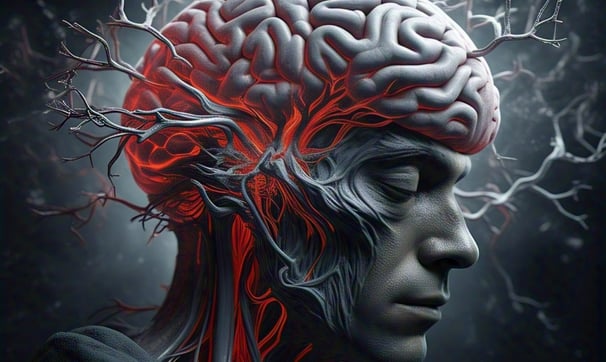The Science of Stress: How It Affects the Brain
SCIENCE


Have you ever felt butterflies in your stomach before a big test, or your heart beating faster when you're nervous? That's stress in action! Let's explore how your brain handles stress and what you can do to help it stay calm and happy.
The Science of Stress: How It Affects the Brain
Have you ever felt butterflies in your stomach before a big test, or your heart beating faster when you're nervous? That's stress in action! Let's explore how your brain handles stress and what you can do to help it stay calm and happy.
Your Brain's Alarm System
Imagine your brain has a special alarm system called the "stress response." Just like a school's fire alarm warns everyone about danger, your brain's stress alarm helps prepare your body to handle challenging situations.
Meet Your Body's Stress Team
When you feel stressed, your brain activates its emergency response team:
The Control Center (Hypothalamus)
Like a command center that sends alerts throughout your body
Signals for special hormones to be released
Gets your body ready for action
The Messenger (Adrenal Glands)
Releases stress hormones like adrenaline and cortisol
Makes your heart beat faster
Gives you extra energy when needed
What Happens When You're Stressed?
When your brain spots something stressful, it triggers some amazing changes:
Your heart beats faster
Your breathing quickens
Your muscles get tense
You might feel more alert
Your palms might get sweaty
This is called the "fight or flight" response – it's your body's superhero mode!
Good Stress vs. Bad Stress
Good Stress (Short-term):
Helps you focus during a game
Makes you alert for a test
Gives you energy to finish a race
Helps you react quickly when needed
Bad Stress (Long-term):
Makes it hard to sleep
Can cause headaches
Might make it difficult to concentrate
Could make you feel tired or grumpy
Your Brain's Stress Superpower
Your brain is amazing at handling short bursts of stress. It's like a muscle that gets stronger with practice. Each time you successfully handle a stressful situation, your brain learns and gets better at managing future challenges.
Stress-Busting Brain Tools
Here are some ways to help your brain manage stress:
Deep Breathing
Takes more oxygen to your brain
Helps you feel calmer
Signals your body to relax
Exercise
Releases happy chemicals in your brain
Uses up stress energy
Helps you sleep better
Talking About It
Shares the load with others
Helps find solutions
Makes you feel supported
Healthy Habits
Getting enough sleep
Eating healthy foods
Taking breaks when needed
Fun Facts About Your Stress Response
Did you know:
Even positive events can cause stress
Animals have stress responses too
Laughter can help reduce stress
Exercise is like a "stress reset button" for your brain
Be Your Brain's Best Friend
Remember that some stress is normal and even helpful! The key is learning to recognize when you're stressed and knowing how to help your brain handle it.
Science Words to Know:
Cortisol: The main stress hormone
Adrenaline: A hormone that gives you quick energy
Hypothalamus: The brain's control center for stress
Endorphins: Feel-good chemicals released during exercise
Fun Activity:
Create your own "Stress Detective Journal":
Write down when you feel stressed
Note what your body does
Record what helps you feel better
Track your stress-busting success!
Try This Experiment:
Test how deep breathing affects your heart rate:
Count your pulse for 30 seconds
Take 5 deep breaths
Count your pulse again
See the difference!
Remember: Your brain is incredibly smart and capable of handling stress. By understanding how it works, you can help it do its job even better!
